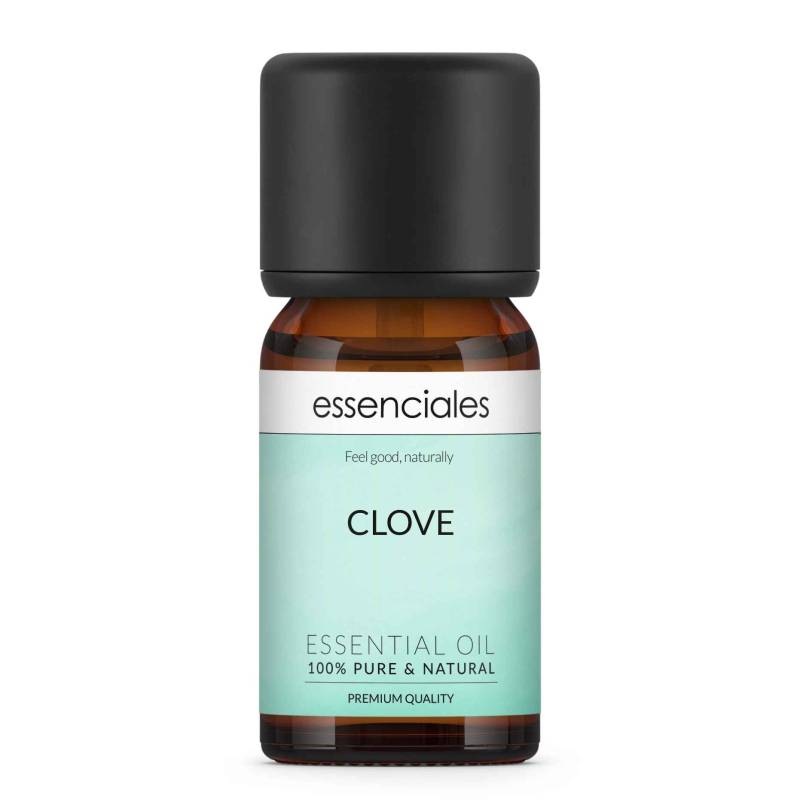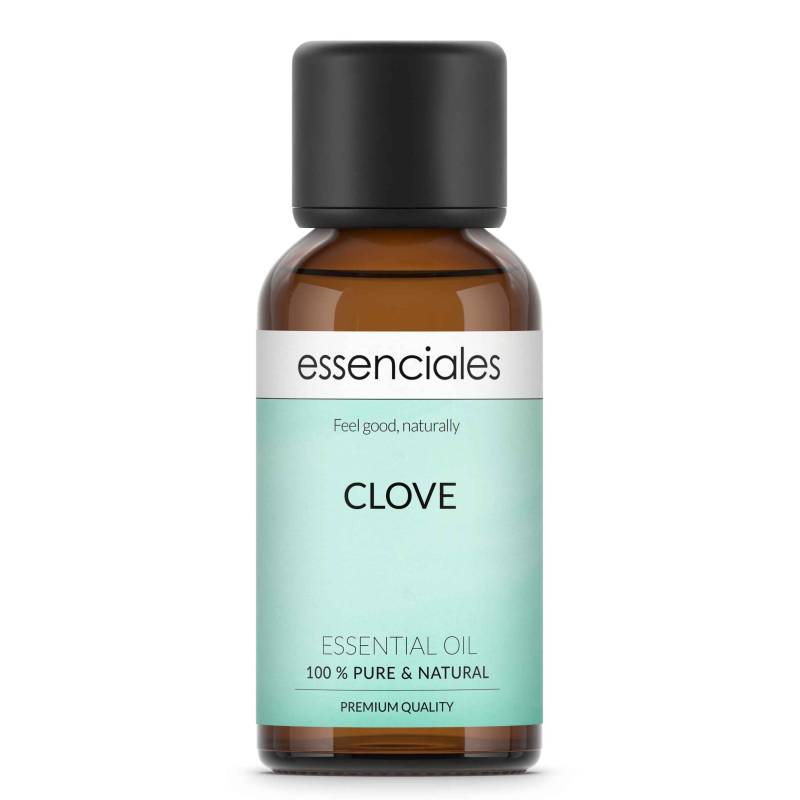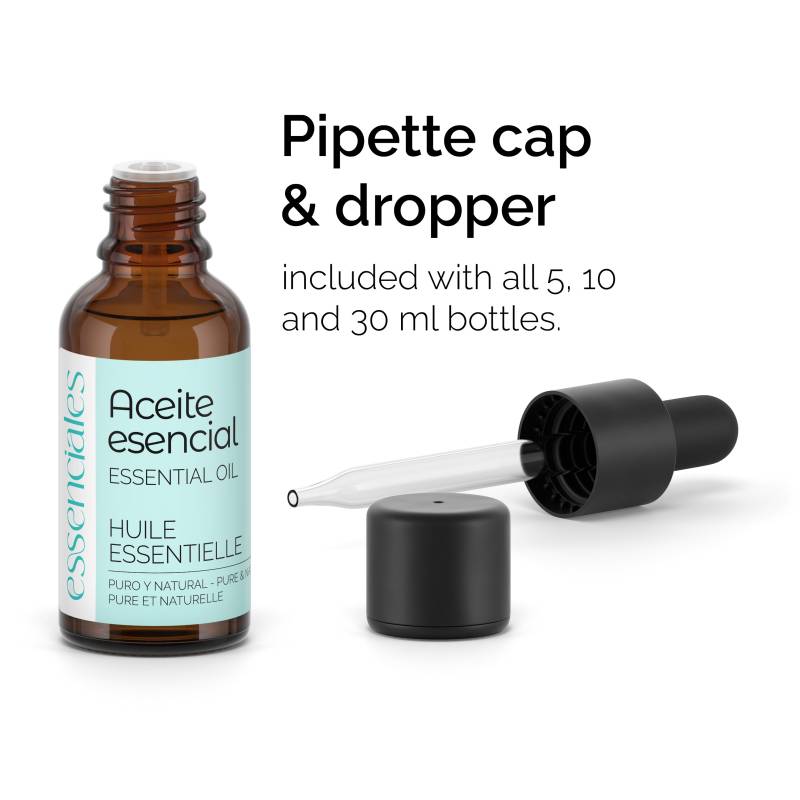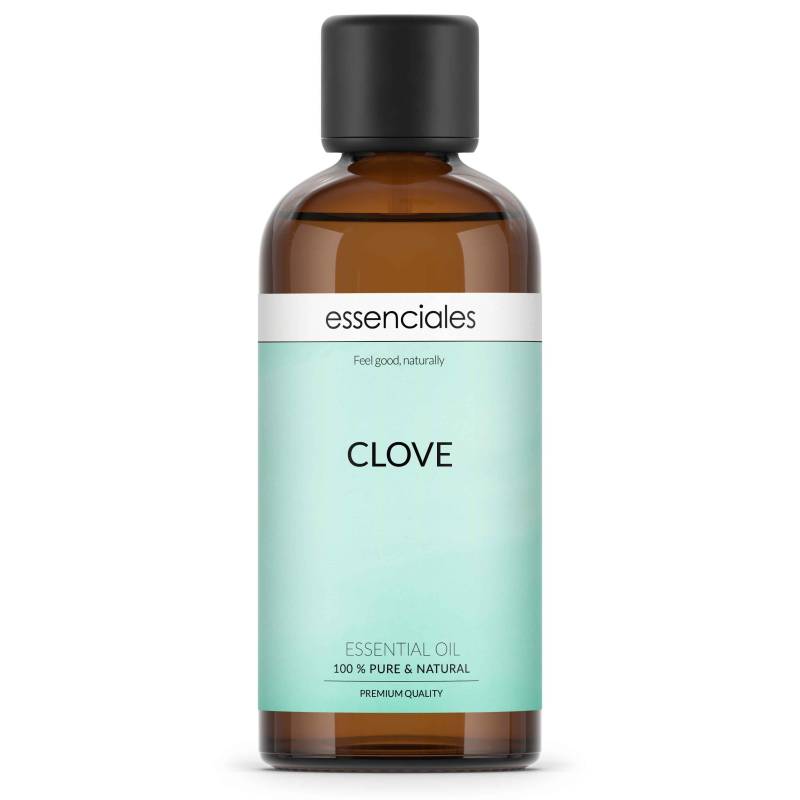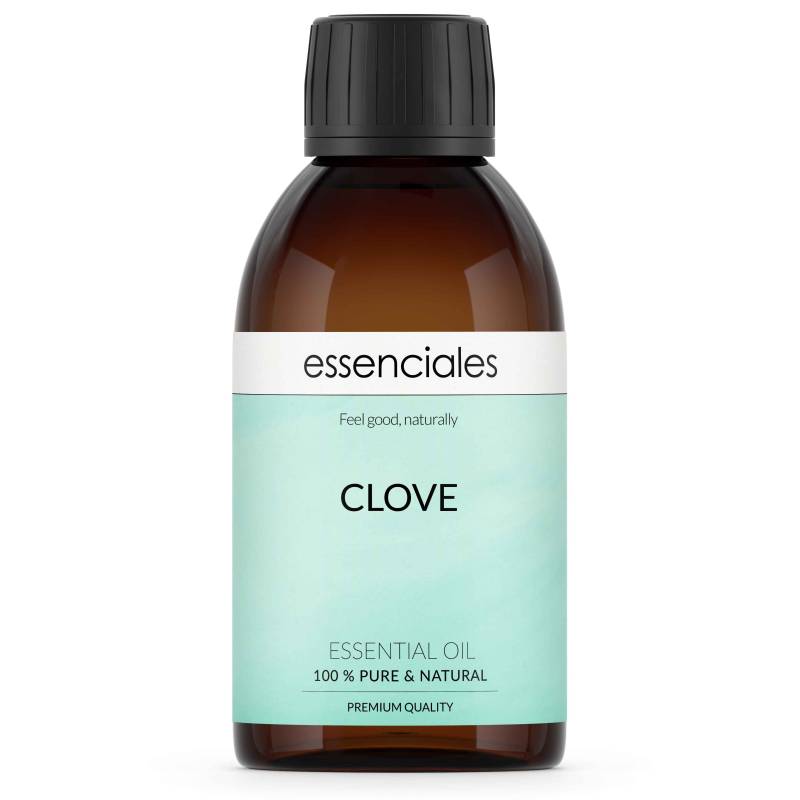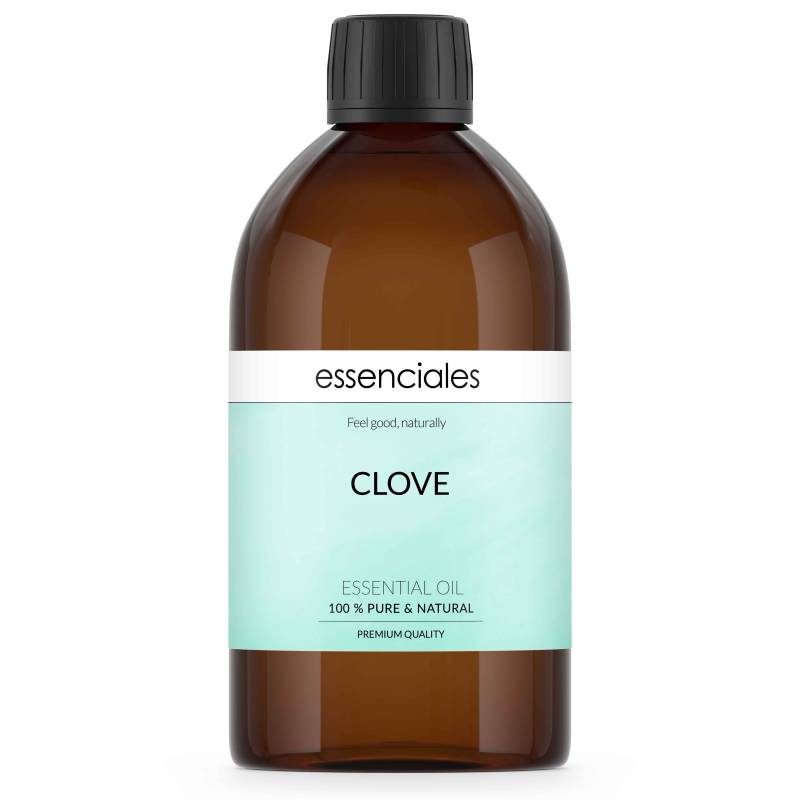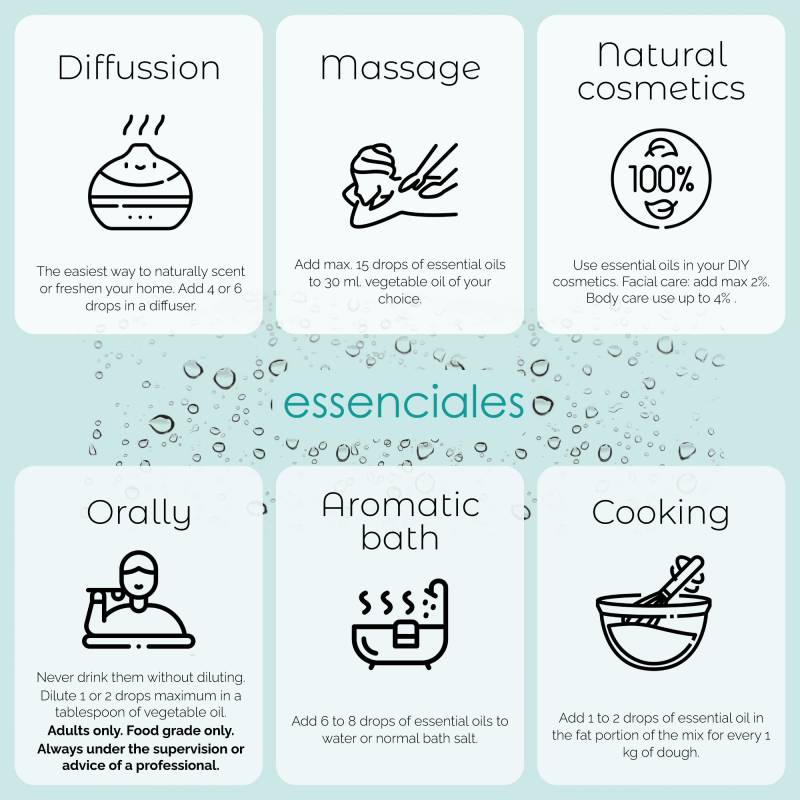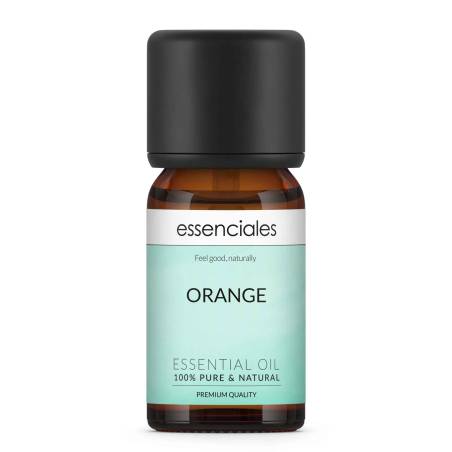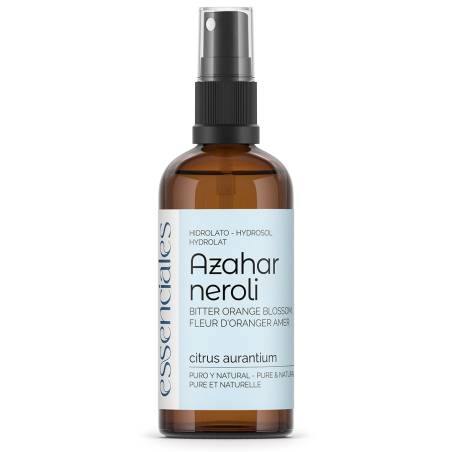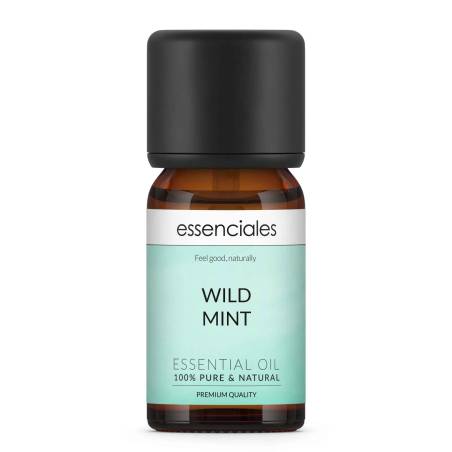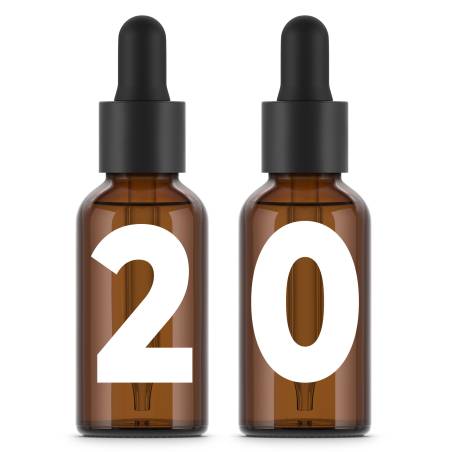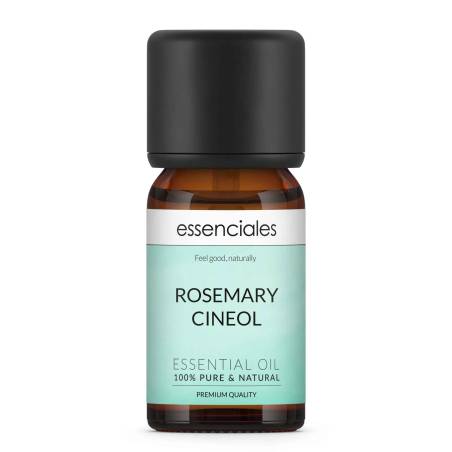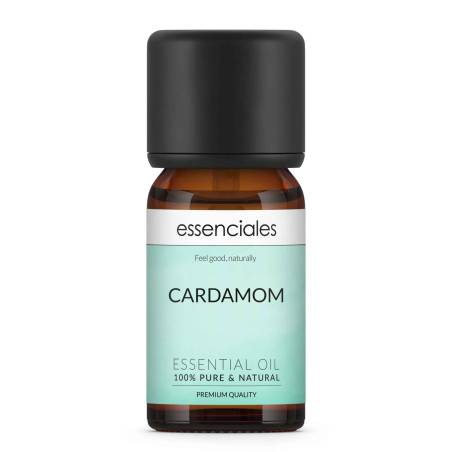The essential oil from clove leaves is possibly the most effective for dental problems. It has been known since ancient times as an excellent remedy for infections and inflammations in the mouth. Moreover, it is one of the essential oils with the highest antioxidant capacity, making it very helpful in combating oxidation factors like pollution, stress, and poor diet.
Properties of Clove Essential Oil · Eugenia Caryophyllus / - Syzygium aromaticum
Currently, due to its eugenol content, it is considered bactericidal, antiseptic, and antifungal. Applied to the skin (never directly and always well-diluted in vegetable oils), it can help fight infections, and fungi, and reduce inflammations. Its scent can relieve symptoms of respiratory and immune system conditions. In aromatherapy and massages, it is considered an aphrodisiac and stimulant, and can combat muscle pain, headaches, stress, and insomnia.
Properties of Clove Essential Oil (Leaves)
Anti-infective: Clove essential oil helps fight intestinal, urinary, oral, skin, and even tropical infections.
Antiviral, antifungal, and antibacterial: Its active ingredients can eliminate a wide variety of pathogens.
Cauterizing and anesthetic: Helps to close wounds on the skin and gums; relieves pain.
Antiparasitic: Useful in the eradication of intestinal parasites.
Stimulating and digestive and general tonic: Eases digestion, lifts the mood, and boosts libido.
Immune-stimulating: Supports the immune system.
Practical Uses and Applications of Clove Leaf Essential Oil
Clove essential oil has traditionally been used to help with the following situations:
Immune system: Low defense states.
Various infections: Urinary, dental, canker sores, skin, tonsillitis.
Nervous system: Helps with asthenia, low spirits, chronic fatigue, mental fatigue, physical fatigue, sexual fatigue.
Recipes with Clove Essential Oil
FOR MASSAGE
- For fatigue, physical or mental exhaustion: Apply 1 drop of clove essential oil with 2 tablespoons of almond or hemp vegetable oil along the spine.
FOR MOUTHWASH
- To relieve dental pain and canker sores: Add 1 drop of clove essential oil to your mouthwash and rinse 3 times a day.
Clove Essential Oil Blends Well With:
Recommended Dilutions for Clove Essential Oil
The essential oil should always be used diluted and avoiding sensitive areas (mucous membranes, eyes, etc.).
Maximum generic dilution for topical use recommended in adults: 0.5%
Maximum generic dilution for topical use recommended in children: AVOID
Strictly avoid use in children under 12 years of age.
Essential oils are highly concentrated substances and should be diluted for most uses. Use our dilution table to get a more detailed idea of the correct use of essential oils:
ESSENTIAL OILS DILUTION GENERAL GUIDE
Notes from Our Aromatherapy Experts
|
“The aroma of clove essential oil has a very high concentration of eugenol, an active substance that gives it its characteristic smell, reminiscent of other scents like cinnamon. Its most widespread use is as a calming agent for dental problems, but it is one of my favorite oils for its antioxidant capacity, making it a valuable tool for combating issues related to pollution, intoxication, and premature aging.”
Luis Rodero, Aromatherapy Expert
|
Identification
Botanical name: Eugenia Caroyphyllus
Origin: India
Extraction method: Steam distillation.
Distilled or extracted part: Leaves
INCI: Eugenia Caroyphyllus Leaf Oil
Safety
Use with extreme caution topically (dilution less than 0.5%), especially in hypersensitive people with dermatological problems. Do not use in children.
Keep out of reach of children.
Some natural components of this essential oil may pose an allergy risk for some people. Always perform a tolerance test before using any preparations by applying a few drops inside the elbow.
Oral use: Yes (under professional advice).
Topical use: Suitable in a maximum dilution of 0.5%.
Diffuser: Suitable in low concentration.
Phototoxicity: No
Sensitizing: Yes
Irritant: Yes
Allergens naturally present in this essential oil:
Isoeugenol <3% Eugenol <87%
We always recommend checking the general precautions for the use of essential oils.
Essential Oil Storage
It is equally important to know how to store essential oils to ensure they remain in good condition and do not become toxic or irritating due to oxidation or contamination. Therefore, we recommend reading this small guide:
Storage of Essential Oils
Important
The essential oil information provided by Essenciales comes from popular sources and is for educational purposes only. It does not intend to offer or sell this product as a diagnosis, treatment, cure, or prevention of any disease. The International Federation of Aromatherapists does not recommend the ingestion or internal consumption of essential oils except under the strict supervision of a physician or doctor qualified in aromatherapy and clinical phytotherapy. Always dilute essential oils well. If you are pregnant, suffer from epilepsy, liver failure, or have a health problem, use essential oils only under medical prescription. Never use essential oils on children without the proper knowledge or instructions from a professional.
Never ignore professional medical advice.
Essenciales does not give medical advice or engage in the practice of medicine.


